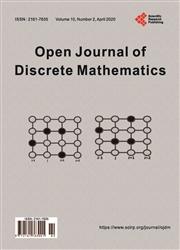Non-backtracking random walks and a weighted Ihara's theorem
引用次数: 33
Abstract
We study the mixing rate of non-backtracking random walks on graphs by looking at non-backtracking walks as walks on the directed edges of a graph. A result known as Ihara’s Theorem relates the adjacency matrix of a graph to a matrix related to non-backtracking walks on the directed edges. We prove a weighted version of Ihara’s Theorem which relates the transition probability matrix of a non-backtracking walk to the transition matrix for the usual random walk. This allows us to determine the spectrum of the transition probability matrix of a non-backtracking random walk in the case of regular graphs and biregular graphs. As a corollary, we obtain a result of Alon et al. in [1] that in most cases, a non-backtracking random walk on a regular graph has a faster mixing rate than the usual random walk. In addition, we obtain an analogous result for biregular graphs.非回溯随机漫步和加权伊哈拉定理
我们通过将非回溯漫步视为在图的有向边上漫步来研究图上非回溯随机漫步的混合率。一个被称为伊哈拉定理的结果将图的邻接矩阵与有向边上的非回溯行走相关的矩阵联系起来。我们证明了Ihara定理的一个加权版本,它将非回溯行走的转移概率矩阵与通常随机行走的转移矩阵联系起来。这允许我们在正则图和双正则图的情况下确定非回溯随机漫步的转移概率矩阵的谱。作为推论,我们在[1]中得到了Alon等人的结果,即在大多数情况下,正则图上的非回溯随机漫步比通常的随机漫步具有更快的混合速率。此外,我们还得到了双正则图的一个类似结果。
本文章由计算机程序翻译,如有差异,请以英文原文为准。
求助全文
约1分钟内获得全文
求助全文

 求助内容:
求助内容: 应助结果提醒方式:
应助结果提醒方式:


